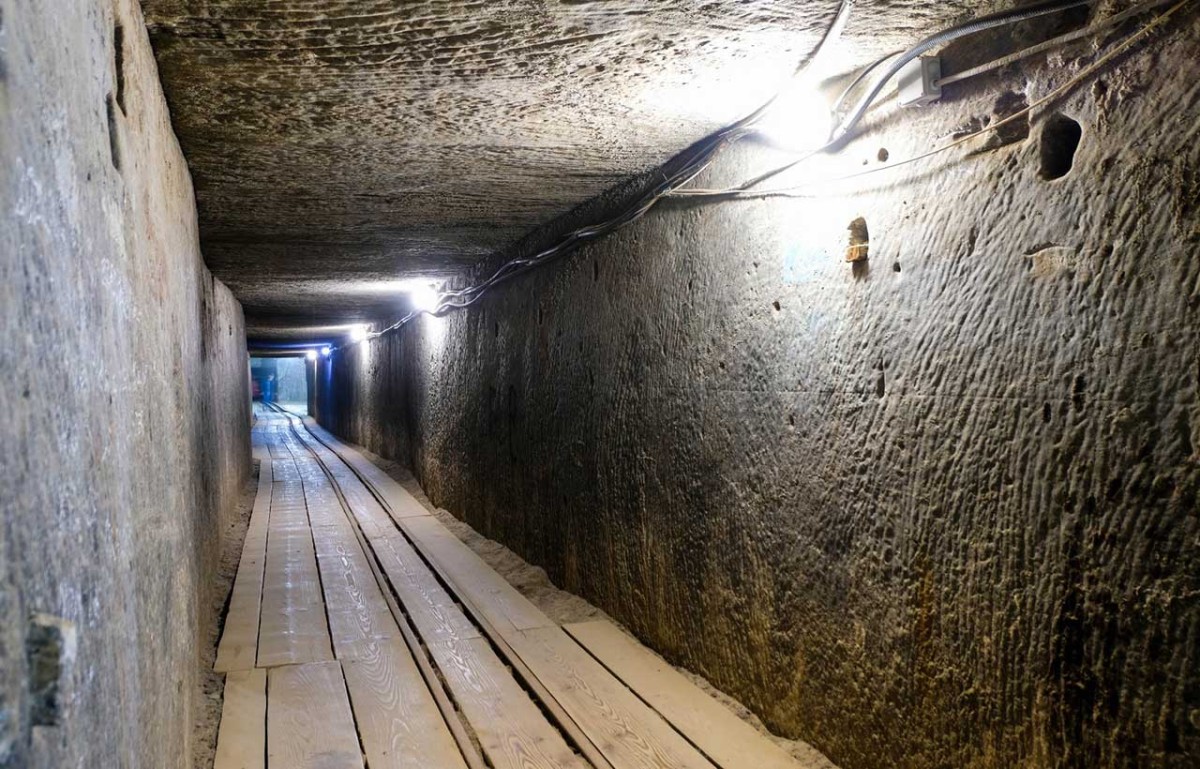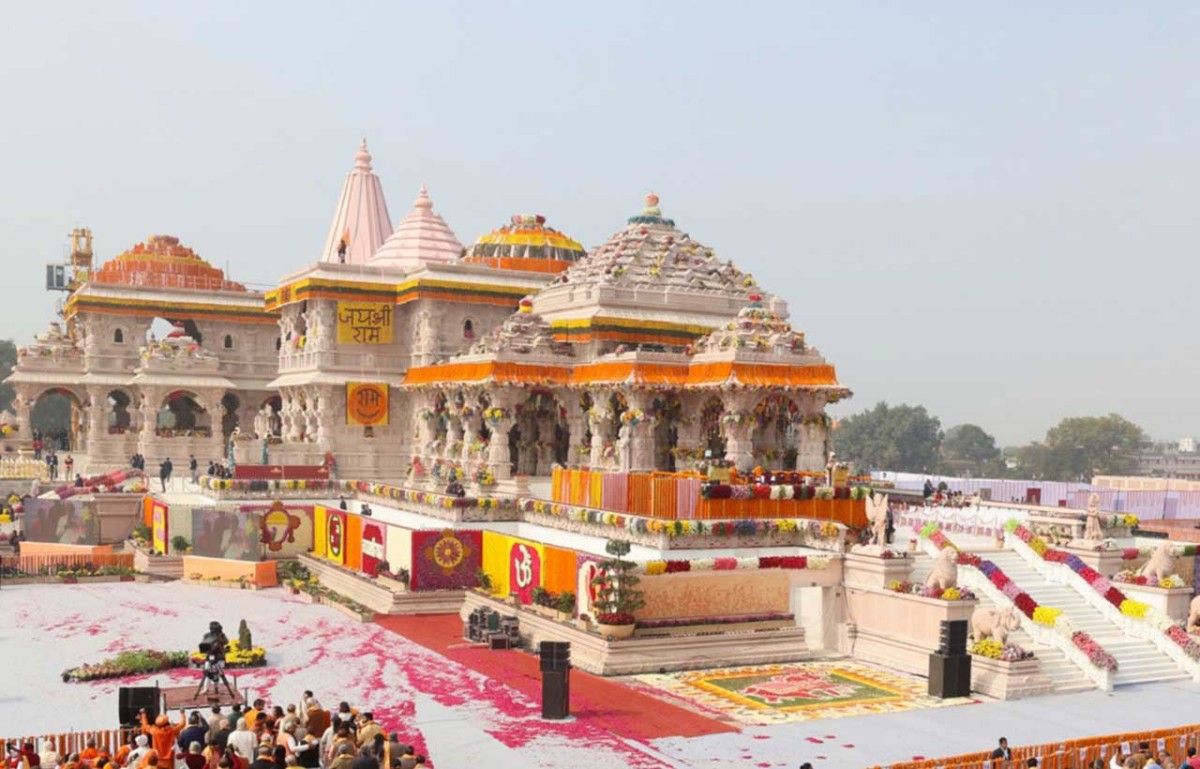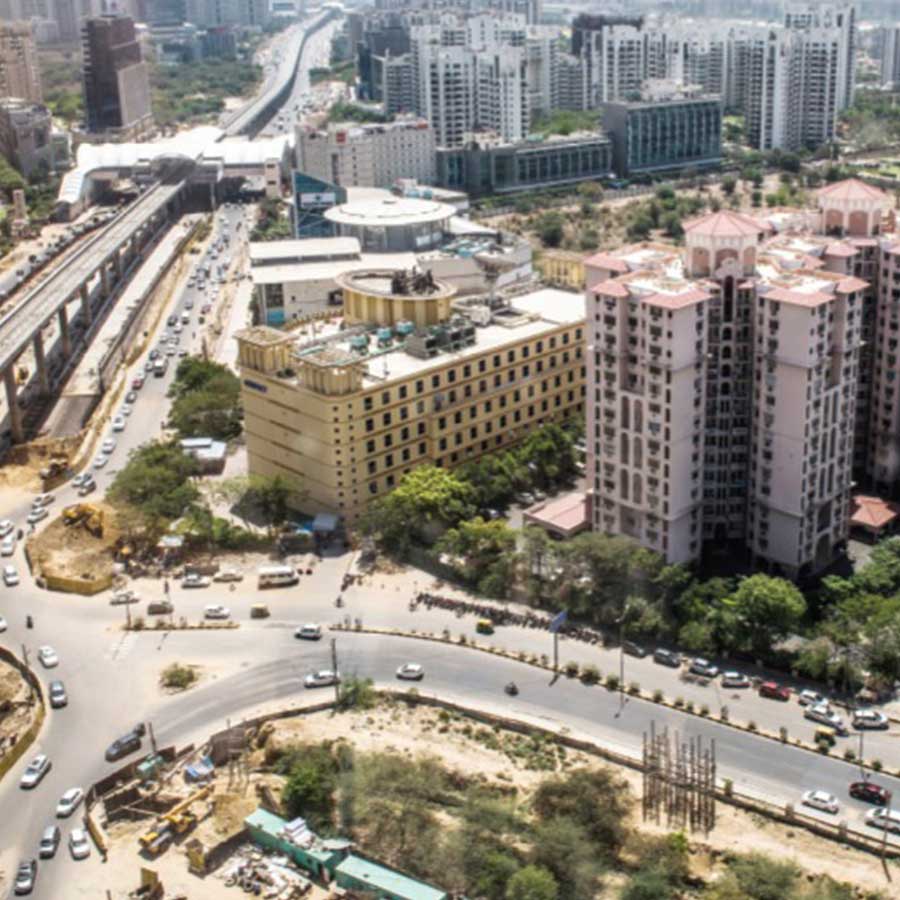A Perfect Confluence of Design and Science, Ayodhya Ram Mandir Is a Visual Treat
- January 24, 2024
- By: Yukti Kasera
- NEWS
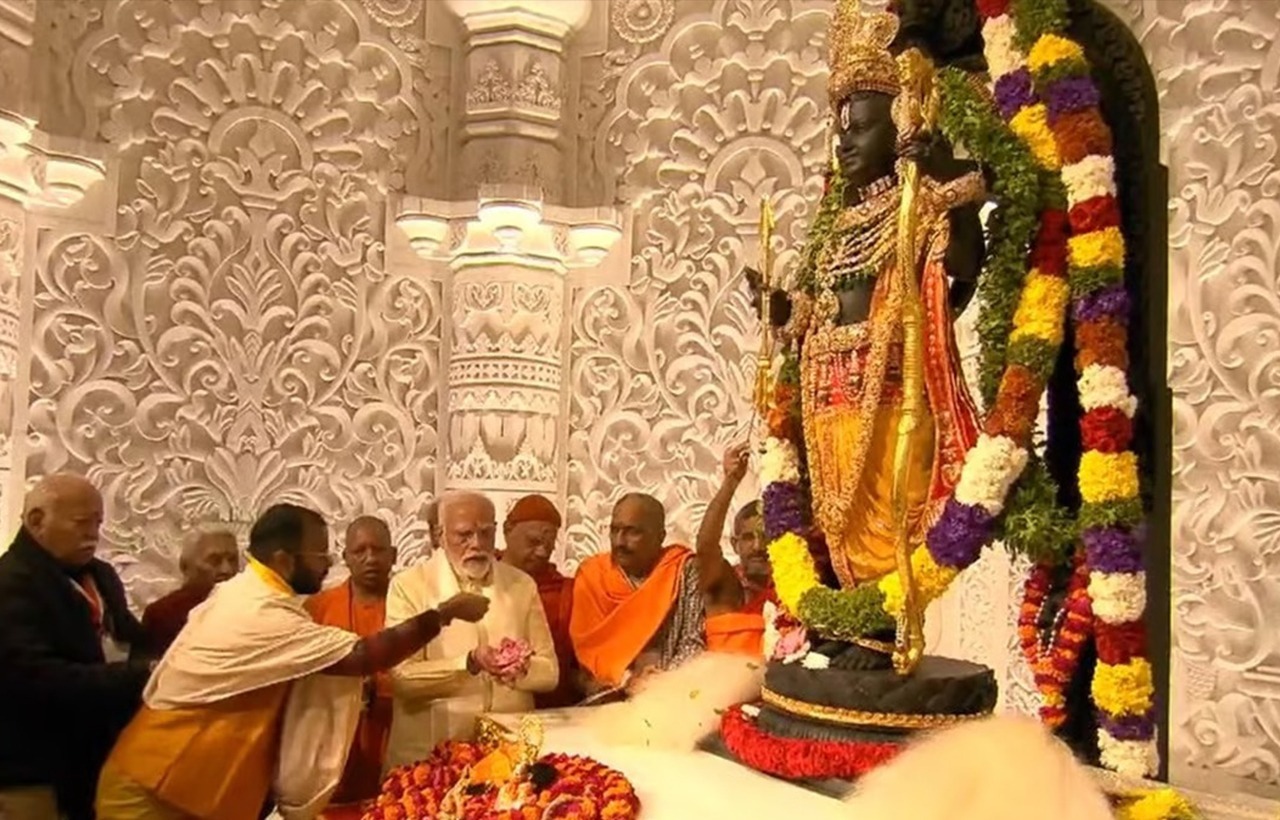 On Monday, January 22, 2024, the Ram Temple in Ayodhya successfully hosted the Pran Pratishtha Ceremony. Constructed in the conventional Nagara architecture, the three-story temple is adorned with pink sandstone from Mirzapur and the Bansi- Paharpur hills. The temple, which is estimated to be worth Rs 1,800 crore, is spread across 71 acres and displays the architectural wonder.
On Monday, January 22, 2024, the Ram Temple in Ayodhya successfully hosted the Pran Pratishtha Ceremony. Constructed in the conventional Nagara architecture, the three-story temple is adorned with pink sandstone from Mirzapur and the Bansi- Paharpur hills. The temple, which is estimated to be worth Rs 1,800 crore, is spread across 71 acres and displays the architectural wonder.
Chandrakant Sompura, the principal architect of Ayodhya Ram Mandir, is descended from a renowned family of temple builders. Nearly thirty years ago, he used his footsteps to measure the area and create the master plan. Chandrakant Sompura, the principal architect of the Ram temple, hails from Ahmedabad and comes from a line of temple architects who have built over 200 such buildings. The Somnath Temple in Gujarat, the Mumbai temple of Swaminarayan, the Gujarati temple complex of Akshardham, and the Birla temple in Kolkata are a few of the notable temples on their long list of temple structures.
One name that will go down in Indian history as the principal architect of the Ayodhya Ram Mandir is Chandrakant Sompura. The Central Building Research Institute Roorkee, the National Institute of Rock Mechanics, the National Geo Research Institute Hyderabad, the IIT Guwahati, the IIT Chennai, the IIT Bombay, and the NIT Surat are among the other institutions that provided design advice for the Ram Mandir.
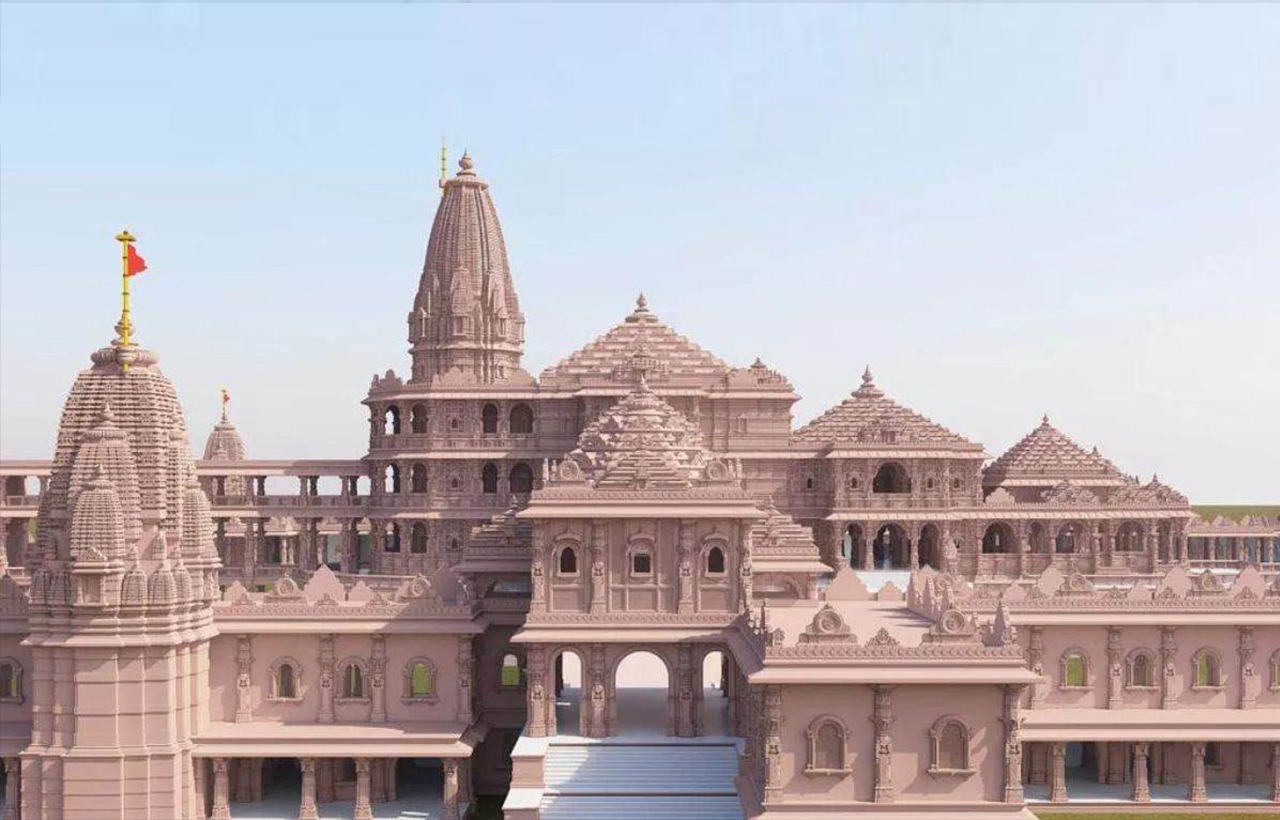 The chief architect Chandrakant Sompura's son Ashish Sompura stated that the creations of today are an extension of what existed on paper thirty years ago.
The chief architect Chandrakant Sompura's son Ashish Sompura stated that the creations of today are an extension of what existed on paper thirty years ago.
When GD Birla offered Chandrakant Sompura the chance to design the temple in 1988, he did so after introducing him to Ashok Singhal, the then-leader of the VHP, who was visiting the Indian temple city of Ayodhya.
"There are sixteen types of architecture in our shastras," Sompura explained, explaining the significance of the Nagara style of temple architecture, which is the style in which the Ram Mandir was constructed. There are currently three styles in India: Dravidian, Nagara, and Vesara. Northern India is a popular region for nagara style. Architecturally speaking, Nagara is the most advanced style and is distinguished by its soaring shikhara.
An Indian company named Larsen and Toubro won the contract to construct the Ram Mandir in 2020. In collaboration with Tata Consulting Engineers Limited, they have successfully constructed a structure that is expected to last for millennia.
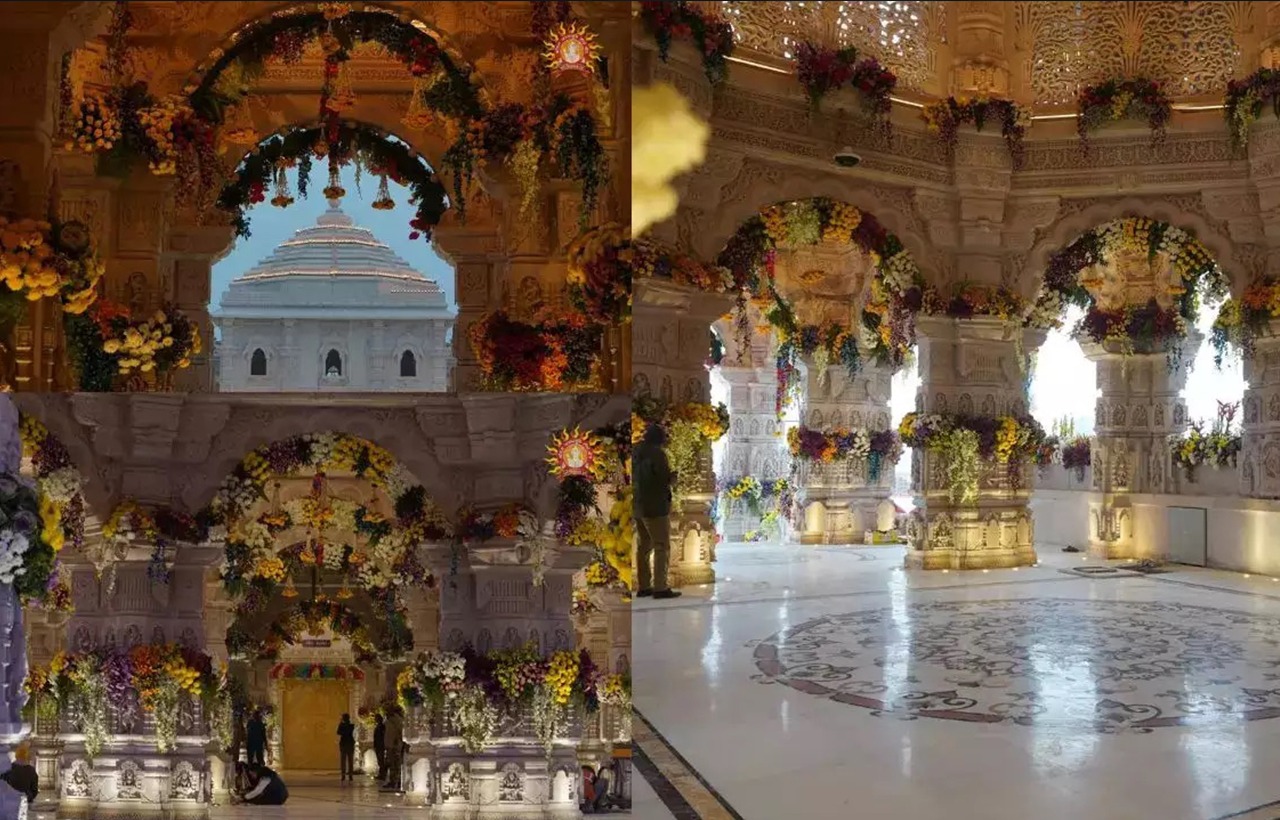 An extensive analysis of the region's past earthquakes was conducted. The readings from Ayodhya to Nepal were included in the analysis. To make the temple earthquake-resistant, a special foundation was created using the data and simulations.
An extensive analysis of the region's past earthquakes was conducted. The readings from Ayodhya to Nepal were included in the analysis. To make the temple earthquake-resistant, a special foundation was created using the data and simulations.
Celebrities, athletes, and political figures ranging from Sachin Tendulkar to Indian Army Chief General Manoj Naravane attended the Ram Temple in Ayodhya's Pran Pratishtha ceremony on Monday. Some called the ceremony a "historic occasion for the nation" while others saw it as a chance for the nation to "make the world violence free".
An idol is "given life" through the "Pran Pratishtha" ceremony, which makes it a deity with the ability to hear prayers and bestow blessings. The event was attended by at least 8,000 invited guests, including dignitaries, celebrities, and business people.
Building Material Reporter believes in serving the best! Stay tuned with us for more ideas related to home decor, design, architecture and construction materials in the industry. We will be coming with more updates on Ram Mandir, Ayodhya.


